Imagine having a toolkit that helps you handle life’s challenges, from anxiety to chronic pain. That’s what Cognitive Behavioral Therapy (CBT) offers. Whether you’re dealing with stress at work, coping with a major life change, or struggling with a long-standing mental health issue, CBT can be a game-changer. But “What Does Cognitive Behavioral Therapy Treat?” Let’s dive in and explore the wide range of conditions CBT can help manage and why it’s such a popular choice for therapists and patients alike.
What Is Cognitive Behavioral Therapy?
Before we get into what CBT treats, it’s essential to understand what it is. Cognitive Behavioral Therapy is a type of psychotherapy that focuses on changing negative thought patterns and behaviors. Developed in the 1960s by Dr. Aaron T. Beck, CBT is based on the idea that our thoughts, feelings, and behaviors are interconnected. By identifying and challenging unhelpful thoughts, we can change the way we feel and act.
Anxiety Disorders
Anxiety can feel like a constant, unwelcome companion, making everyday tasks seem daunting. CBT is highly effective in treating various anxiety disorders, including:
- Generalized Anxiety Disorder (GAD): For those who worry excessively about everyday matters, CBT helps by challenging and changing the irrational fears and thoughts that fuel anxiety.
- Panic Disorder: Sufferers of panic attacks learn to recognize the triggers and thought patterns that lead to their episodes, reducing the frequency and intensity of the attacks.
- Social Anxiety Disorder: CBT helps individuals overcome the fear of social situations by addressing negative self-beliefs and promoting gradual exposure to feared scenarios.
Depression
Depression can be a heavy burden, affecting every aspect of life. CBT is one of the most effective treatments for depression. It works by helping individuals:
- Identify and challenge negative thought patterns.
- Develop healthier, more balanced ways of thinking.
- Engage in activities that improve mood and overall well-being.

Post-Traumatic Stress Disorder (PTSD)
PTSD can develop after experiencing a traumatic event. The symptoms can be debilitating, but CBT offers hope. Through techniques like cognitive restructuring and exposure therapy, CBT helps individuals process their trauma, reduce distressing symptoms, and regain control over their lives.
Obsessive-Compulsive Disorder (OCD)
OCD is characterized by intrusive thoughts and repetitive behaviors. CBT, particularly Exposure and Response Prevention (ERP), is highly effective in treating OCD. ERP involves:
- Gradually exposing individuals to their fears.
- Preventing the compulsive behaviors that follow.
- Helping them learn that their fears are unfounded reduces the urge to engage in compulsions.
Eating Disorders
Eating disorders, such as anorexia, bulimia, and binge-eating disorder, involve unhealthy relationships with food and body image. CBT addresses these issues by:
- Challenging distorted thoughts about food, weight, and self-worth.
- Promoting healthier eating habits and attitudes.
- Providing strategies to cope with triggers and stressors.
Substance Abuse
Substance abuse and addiction are complex issues, often rooted in negative thought patterns and behaviors. CBT helps by:
- Identifying the triggers and thoughts that lead to substance use.
- Developing coping strategies to deal with cravings and avoid relapse.
- Encouraging healthier lifestyle choices and behaviors.
Insomnia
Struggling to get a good night’s sleep? CBT for Insomnia (CBT-I) is a highly effective treatment. It focuses on:
- Identifying and changing thoughts and behaviors that contribute to sleep problems.
- Developing healthier sleep habits and routines.
- Reducing anxiety and stress related to sleep.
Chronic Pain
Living with chronic pain can be challenging, but CBT offers tools to manage it more effectively. CBT for chronic pain involves:
- Changing the way individuals perceive and respond to pain.
- Developing coping strategies to reduce pain-related distress.
- Encouraging activities that improve overall well-being and quality of life.
If you are looking for a reliable Arlington Behavior Therapy Center, just give Elysian Psychological Services a call now! Our experts are always ready to help you out.
Phobias
Phobias are intense, irrational fears of specific objects or situations. CBT, especially through exposure therapy, helps individuals confront and overcome their fears. By gradually facing the feared object or situation in a controlled manner, individuals learn to reduce their anxiety and gain confidence.
Bipolar Disorder
Bipolar disorder involves mood swings between manic and depressive episodes. CBT helps by:
- Teaching individuals to recognize and manage early signs of mood changes.
- Developing strategies to maintain stability and prevent relapse.
- Addressing negative thought patterns that can contribute to mood swings.
Anger Management
Struggling with anger can impact relationships and overall well-being. CBT for anger management focuses on the following:
- Identifying the triggers and thoughts that lead to anger.
- Developing healthier ways to express and manage anger.
- Promoting relaxation techniques and problem-solving skills.
Relationship Issues
CBT isn’t just for individuals; it can also be beneficial in couples therapy. Relationship issues often stem from negative communication patterns and unresolved conflicts. CBT helps couples by:
- Improving communication and conflict resolution skills.
- Identifying and changing negative thought patterns about the relationship.
- Promoting healthier, more supportive interactions.
Stress Management
In today’s fast-paced world, stress is a common issue. CBT offers effective tools for managing stress, including:
- Identifying and challenging stress-inducing thoughts.
- Developing healthier coping strategies and time management skills.
- Promoting relaxation techniques and self-care practices.
Borderline Personality Disorder (BPD)
BPD is characterized by intense emotional instability, impulsivity, and difficulties in relationships. CBT, particularly Dialectical Behavior Therapy (DBT), is effective in treating BPD. DBT focuses on:
- Developing emotional regulation skills.
- Improving interpersonal effectiveness.
- Teaching mindfulness and distress tolerance techniques.
Schizophrenia
Schizophrenia involves distorted thinking, perceptions, and behaviors. While medication is often essential, CBT can help manage symptoms by:
- Challenging delusional thoughts and hallucinations.
- Developing coping strategies to deal with symptoms.
- Improving social and occupational functioning.
Grief and Loss
Grieving the loss of a loved one can be an overwhelming experience. CBT helps individuals process their grief by:
- Addressing and challenging unhelpful thoughts related to the loss.
- Promoting healthy coping strategies and self-care.
- Supporting the development of new routines and finding meaning after the loss.
Health Anxiety
Health anxiety involves excessive worry about having a serious illness. CBT helps by:
- Challenging irrational thoughts about health and illness.
- Reducing checking behaviors and reassurance-seeking.
- Promoting healthier ways to manage health concerns.

Summary
Cognitive Behavioral Therapy is a versatile and effective treatment for a wide range of mental health conditions. From anxiety and depression to chronic pain and substance abuse, CBT offers practical tools to help individuals manage their symptoms and improve their quality of life. By addressing negative thought patterns and promoting healthier behaviors, CBT empowers individuals to take control of their mental health and build a more fulfilling life.
If you’re struggling with any of the issues mentioned, consider reaching out to a mental health professional trained in CBT. With the right support, you can harness the power of CBT to navigate life’s challenges and achieve your goals.
Read more about “What is Behavioral Couples Therapy?” on our blog page today!
Take the Next Step
So, there you have it. CBT can be a game-changer. It’s like giving your brain the tools it needs to thrive. Don’t be afraid to explore this option if you’re looking to improve your mental well-being. Ready to explore CBT further? Elysian Psychological Services can guide you. Let’s unravel the differences together. Book a consultation today and find the perfect therapy for your journey. Your mental well-being matters.


